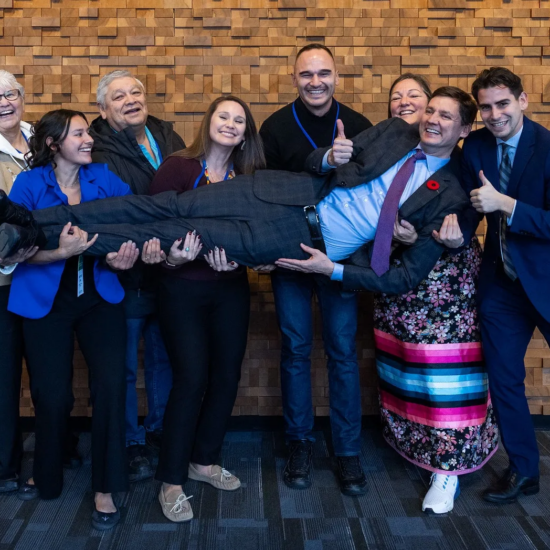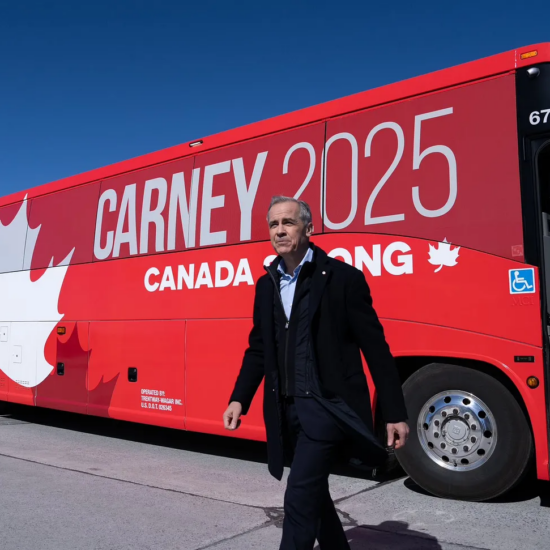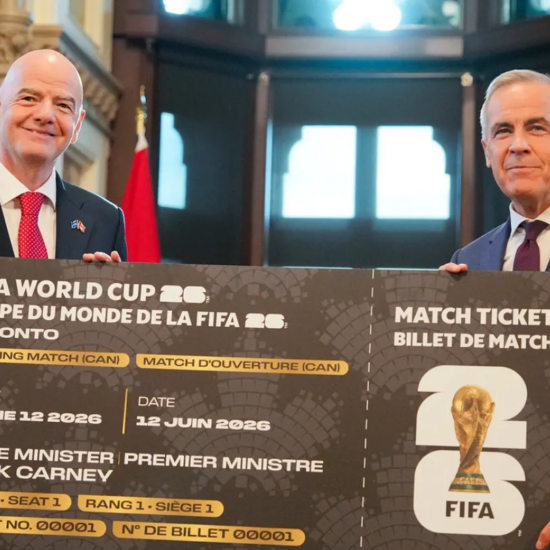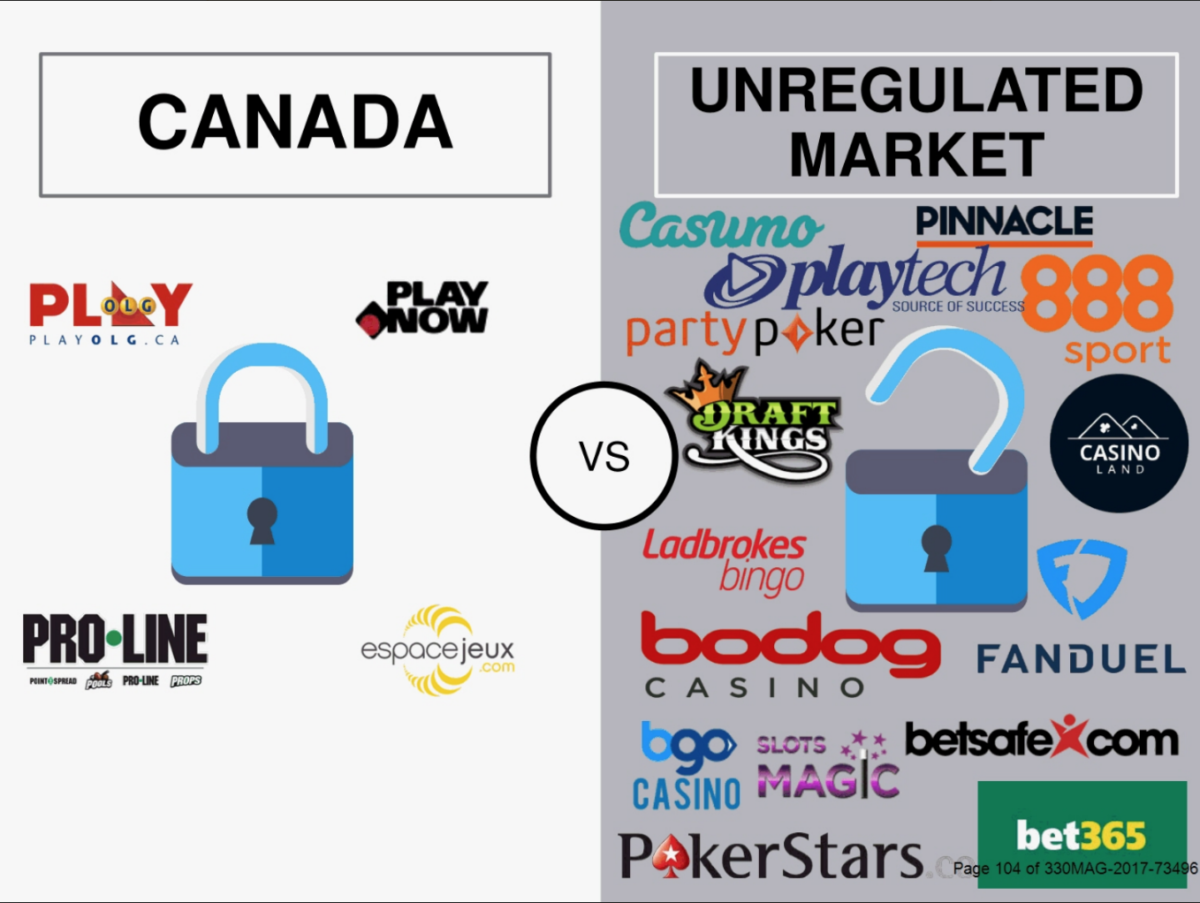
Bob Mackin
In its quest to crack down on unlicensed sports and poker websites, the British Columbia government is proposing a multi-province complaint to the Canadian advertising industry’s self-regulator.
At a meeting of the Canadian Association of Gambling Regulatory Agencies in Charlottetown last September, an official from B.C.’s Gaming Policy and Enforcement Branch urged fellow provincial regulators to team-up and file a special interest group complaint with Advertising Standards Canada. Thousands of websites, some of which are major advertisers on Canadian sports broadcasts and websites, are taking business from provincial gambling corporations and depriving governments of revenue.
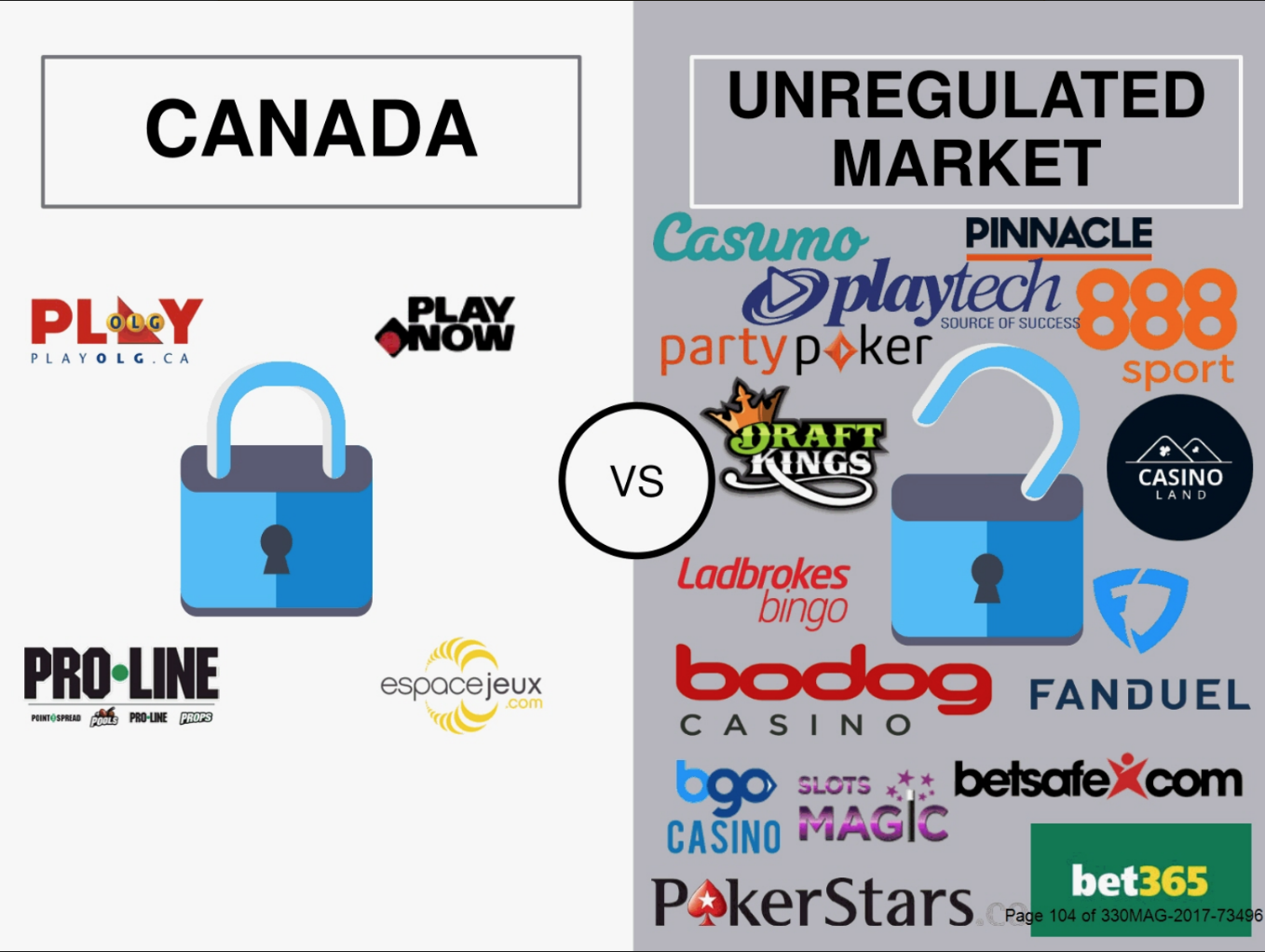
Canada’s legal gambling websites compete with many unregulated companies. (GPEB)
“B.C. is willing to lead the drafting of this complaint with input from those provinces that are interested in participating,” said the speaking notes for Michele Jaggi-Smith, the GPEB executive director of policy and projects. “Participation would involve some research by each regulator— namely, documenting the instances and mediums of advertising by these websites in your province from now until our next Community of Practice meeting — the more evidence we can show that this type of advertising is prevalent and linked to actual gambling websites, the better.”
The Advertising Standards Council, whose members include some of Canada’s biggest media companies and advertisers, can ask for an advertiser to amend or withdraw an advertisement. Jaggi-Smith’s notes, released to theBreaker under freedom of information, do not specify the complaint, but the council’s Code includes 14 provisions that could apply, such as accuracy and clarity, guarantees, safety, and advertising to minors,
“My view is that if there were enough regulators that agreed with the proposed complaint, that would be enough to meet the test for special interest group. The ASC would have difficulty ignoring a group of government regulators making a singular complaint of this nature,” she said.
Section 207(4)(c) of the Criminal Code allows only a province to conduct and manage a lottery or game of chance on or through a computer. The section has not been clearly defined in law or by a court while technology has rapidly advanced. For fear of being shut-down, some Canadian online gambling companies moved their operations offshore, while others migrated to the Kahnawake Mohawk reserve near Montreal.

GPEB executive director Michele Jaggi-Smith (LinkedIn)
Gambling companies not licensed by provincial governments are significant advertisers on Canadian sports TV and radio channels and websites. They generally tout free-play or “educational” dot-net websites, hoping that gamblers will find their way to the pay-to-play dot-com sites. One such recent free-play campaign was for the Malta-based, Swedish-developed LeoVegas.com. The company used its LeoVegas.net address for a spring TV and billboard ad campaign in B.C. that starred former Toronto Maple Leaf and Vancouver Canuck Mats Sundin.
Jaggi-Smith estimated there are over 2,200 unregulated websites accessible by British Columbians that compete with B.C. Lottery Corporation’s PlayNow.com. She estimated the industry is worth $50 billion worldwide and $640 million in B.C. The sites, however, lack consumer protection, technical integrity and responsible gambling checks and balances.
“You’re probably familiar with a number of these companies, or at least their names — PokerStars, Party Poker, Draft Kings, Bet888, Bodog — these are all companies that operate gambling websites legally in other jurisdictions,” said the speaking notes. “There are many reasons why we believe Canadians choose to gamble in the unregulated market — from the ability to place bets on single sports events to having a larger variety of choice when it comes to operator. We do know that many who gamble in the unregulated market are unaware of the risks involved.”
Jaggi-Smith said government bears the negative social consequences and pays through its health and justice systems for addicts and criminals who gamble on unregulated sites.
Revenue from unregulated sites goes into “private pockets,” often located offshore, to benefit shareholders and executives. Jaggi-Smith showed a picture of Calvin Ayre, the Saskatchewan native who founded Bodog in Vancouver. She said at Ayre’s peak, his net worth was over US$1 billion.
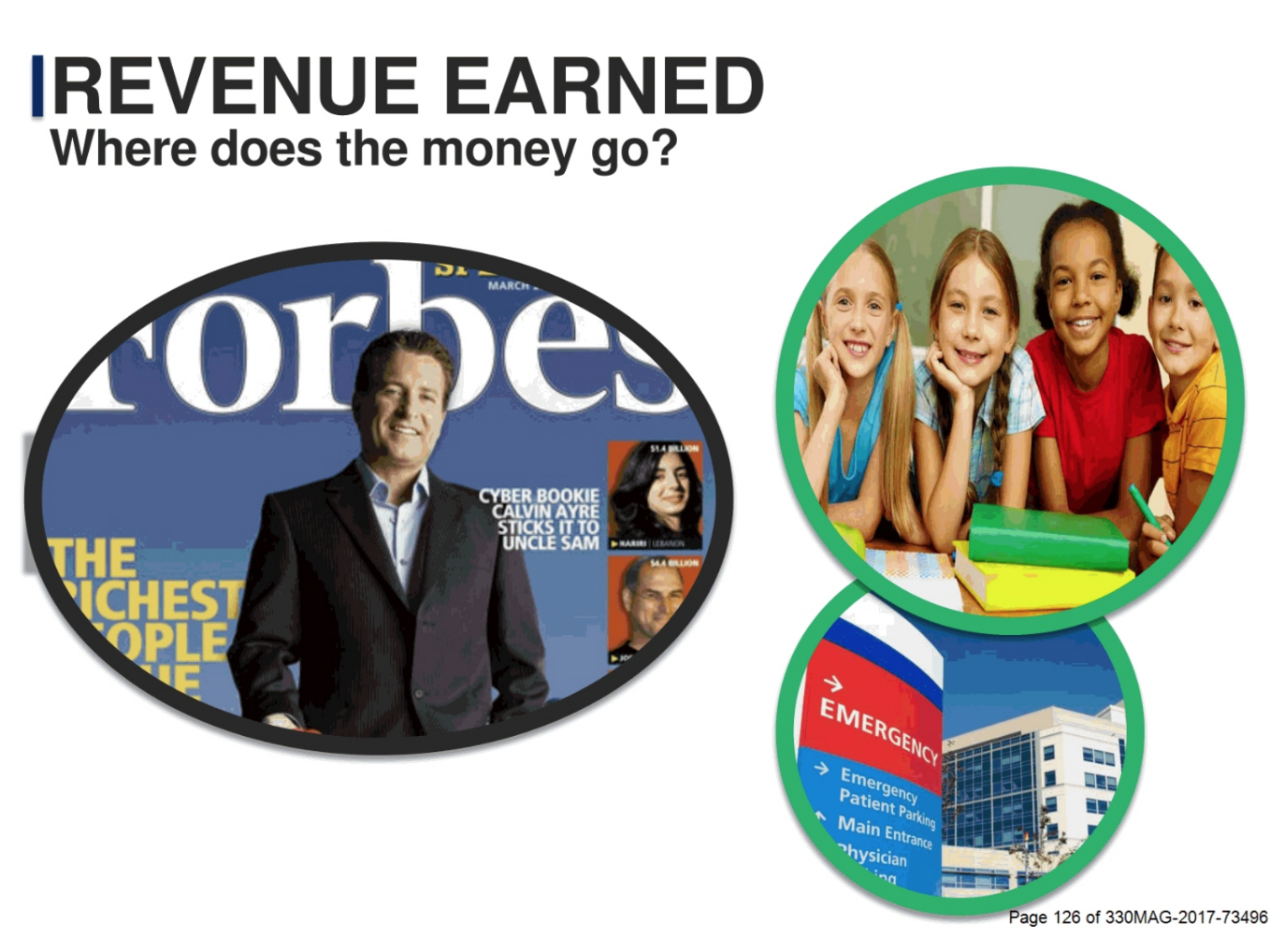
Slide from Jaggi-Smith’s presentation shows Canadian online gambling tycoon Calvin Ayre (GPEB)
In 2017, Ayre avoided jail in the U.S. when he pleaded guilty in Maryland to being an accessory after the fact to transmission of wagering information from 2005 to 2011. He was fined $500,025 and put on unsupervised probation for a year.
A representative of the Ministry of Attorney General told theBreaker that the advertising standards complaint has yet to be filed. GPEB is still discussing the matter with other provinces.
“GPEB is currently compiling information to support a complaint, including identifying how the advertisement of unregulated sites may violate the Canadian Code of Advertising Standards. GPEB will share that information and a draft complaint letter with other provincial gambling regulators for their consideration,” said a prepared statement sent by Liam Butler.
In August 2016, GPEB sent letters to 18 companies that operate at least 25 of the most prominent gambling websites, asking them to stop targeting B.C. gamblers. However, none of them ceased operations in B.C.
Quebec’s Bill 74 was intended to give Loto-Quebec power to order Internet service providers to block illegal gambling websites. The law was opposed by Canada’s telecommunications industry and free speech advocates and the Canadian Radio-television Telecommunications Commission ruled it illegal in late 2016.
In the wake of a the U.S. Supreme Court’s landmark May 14 decision to legalize sports betting outside Nevada, B.C. Attorney General David Eby said the federal government should legalize single-event wagering in Canada for the benefit of provincial gambling monopolies. The most-recent attempt to amend the Criminal Code, an NDP private member’s bill called the Safe and Regulated Sports Betting Act, was defeated in the House of Commons in fall 2016.
“We really need the federal government to be involved in the discussion, given the fact that British Columbians are already betting on single-game events using these grey market and black market websites,” Eby told theBreaker in a May interview. “How can we ensure we protect the integrity of sport in Canada and how can we ensure there are responsible gaming and age protections in place for these kinds of bets, if they were to take place in Canada?”
Support theBreaker.news for as low as $2 a month on Patreon. Find out how. Click here.






